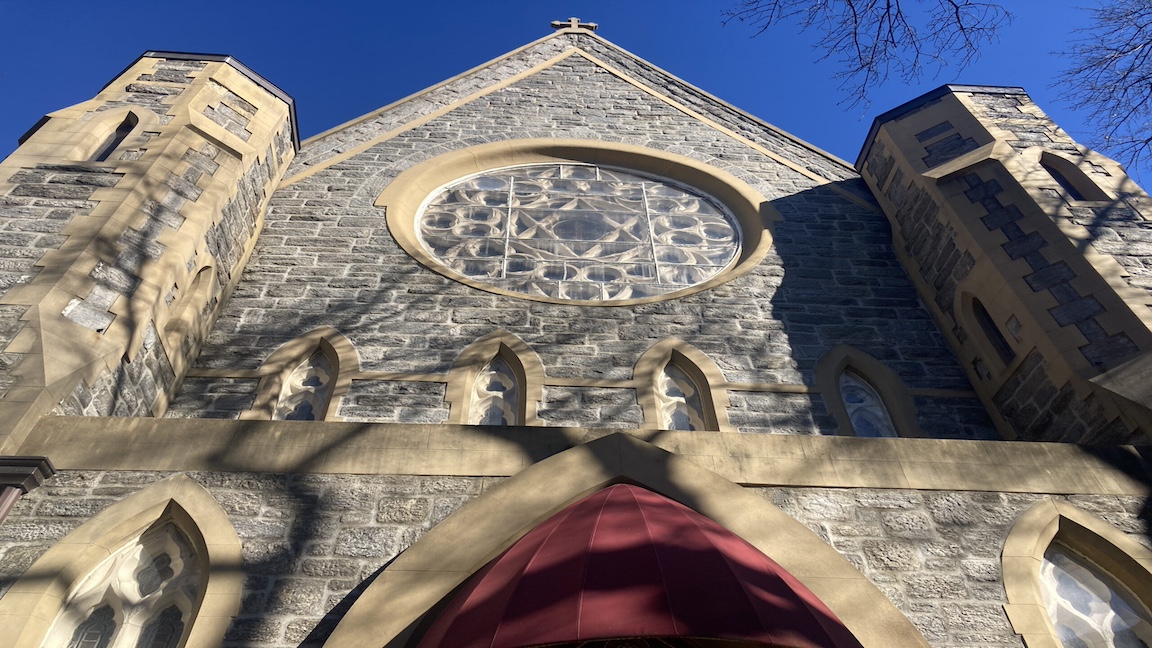
NEW YORK — The Rev. Thomas Zain of St. Nicholas Antiochian Orthodox Church in Brooklyn faces his congregation as the choir sings, “Intercede with Christ, He will save our souls.” Everyone is standing. A letter from Scripture is sung by one of the chanters after which, Zain sings, “The Holy Gospel” and makes the sign of the cross. The congregation does the same. Zain chants from the Gospel of Luke, the story of Zacchaeus.
St. Nicholas Antioch Cathedral is located at 355 State Street in Boerum Hill, Brooklyn. It’s an Antiochian Orthodox Church made in the Gothic style.
The gospel tells of how Zacchaeus, a chief tax collector in the city of Jericho and a man of short stature but of pure faith, climbed a sycamore to see Jesus. When Zain finished reading, he made the sign of the cross, indicating the end of the gospel and the beginning of the teaching.
Zain first makes mention of the upcoming season of the church, Lent. The story of Zacchaeus’s climb up the tree, he jokes, is “a nice way to say he was short,” bringing a light tone to a more introspective story. Zacchaeus, he said, “desired to see God” and went to great lengths to witness Jesus in the crowd.
Zain invites the congregation to meditate and imagine themselves in a crowd longing to see something or someone. “He desired to see Christ so much.” He is urging the congregation to consider their desire to see Christ in their own lives. “Everything we want to do in this life begins with desire.”
Zain has notes in his hands, but mostly speaks unaided. He wants to make sure the parishioners are inspecting their own hearts, and prompts them with a question: “What do we really love and desire more than anything else?” He references a meme about people in the cold watching a football game and compares it to the struggle of making it to church, whether it’s the cold or being unable to find parking. He pauses. This invites the listener to take stock of their spiritual habits.
“Zacchaeus is an example, brothers and sisters, for all of us,” he says. References to “we” and “us” let the parishioner know that Zain struggles himself, despite being a priest.
“Imagine that if God said I want to come and eat in your home,” the priest says. He engages the imagination using the gospel story. “We have to let Him in, and it begins with desire.” Zain refers to the idea of God living in people versus having worldly desires that push Him away. Worldly desires, he says, are “those things [that] fill our hearts and there’s no room for Christ.” He pauses again, providing a moment for the parishioner to examine their hearts. He moves onto this idea of cleansing oneself to make room for Christ, and that it begins with desire. He glances at his notes and references Revelation, “Behold I stand at the door and knock.” Christ is the one who knocks at the door in our hearts.
Zain’s voice grows louder to emphasize, “Today salvation has come to this house.” Zain wants his congregation to realize they can only respond to Christ when their desires are pure. Then we can hear His knocking on our hearts. He sends by saying, “Let us take this lesson with Zacchaeus and ask ourselves ‘what is our desire?’ That we may one day be worthy of the kingdom.” He ends with the sign of the cross, and the congregation does the same.
